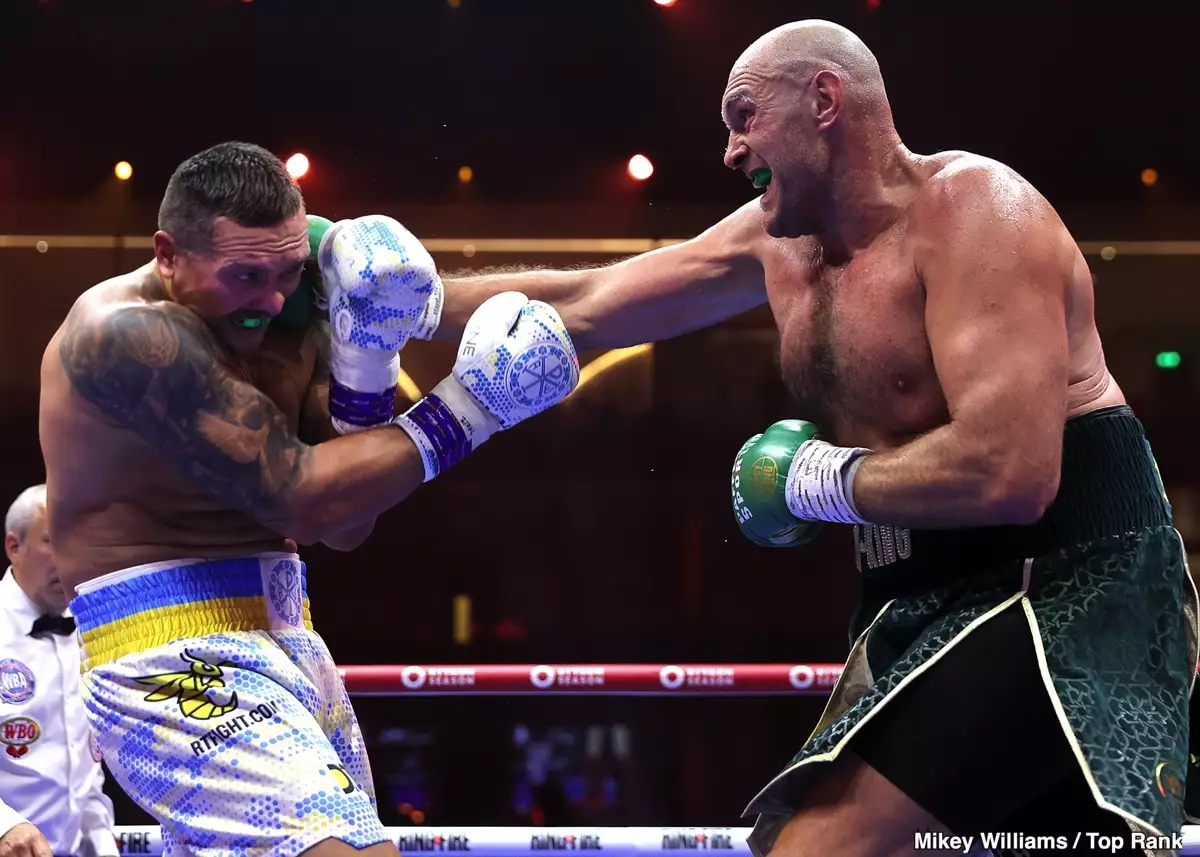As the boxing world gears up for one of the most anticipated rematches in heavyweight history, Tyson Fury’s coach, Andy Lee, has made bold claims about the upcoming showdown against Oleksandr Usyk. Scheduled for December 21st, this fight might not just be another bout—it could define the legacies of both fighters. Lee’s confidence in Fury’s ability to secure a knockout victory signals not just a tactical approach but also speaks to the broader implications for Fury’s standing in the heavyweight division.
Lee emphasizes that preparation will play a crucial role in Fury’s performance this time around. In their first meeting, Fury was hindered by a cut, which derailed his sparring schedule, a vital component in any boxing camp. This lack of preparation is a point of contention that could have contributed to Fury’s less-than-stellar performance. With a full camp now, Lee believes Fury will come in fitter and sharper. However, the coach’s optimism raises a critical question: can conditioning alone address the technical deficiencies that became apparent in the first fight?
Fury’s previous successes in rematches against fighters like Deontay Wilder, John McDermott, and Derek Chisora have been touted as evidence of his potential to bounce back. Yet, such victories do not equate to a legacy built on consistently beating elite competition. Lee’s argument lacks acknowledgment of the reality that those opponents, while formidable, do not rise to the skill level of Usyk, a fighter known for his boxing IQ and finesse.
Fury’s performance against Usyk exposed vulnerabilities that go beyond mere physical conditioning. It was not solely his fitness that faltered; his punch resistance and defensive skills were scrutinized when Usyk was able to capitalize on Fury’s weaknesses. Lee states, “Fury needs to be fitter, and that would make a big difference,” but the reality may be that Fury also needs to refine his technique and ring awareness.
While Lee talks about the need for aggression, boxing is equally about defense and adaptability. To outmaneuver a tactically adept opponent like Usyk, Fury must demonstrate improvement not only in fitness but also in his boxing acumen. Without addressing these critical aspects of his skill set, the narrative of Fury as one of the all-time greats becomes increasingly tenuous.
Contrary to Lee’s comments about Fury feeling minimal pressure, the reality is quite different. The weight of expectations looms large. A loss to Usyk would not just be a personal setback; it could significantly impact the proposed mega-fight against Anthony Joshua in the future. The stakes are monumental, as consecutive defeats would tarnish the allure of that bout, relegating it to just another fight rather than a clash of titans.
Fury’s legacy is inextricably linked to his performance against opponents of Usyk’s caliber. While Lee expresses faith in Fury’s standing as one of the best heavyweights in history, such assertions must be grounded in fact. The erosion of reputation following losses can overshadow previous accomplishments, transforming a once-celebrated career into a cautionary tale about missed opportunities and unfulfilled potential.
As fight night approaches, the dialogue surrounding Tyson Fury’s capabilities, pressure, and legacy continues to evolve. Andy Lee positions himself as an unwavering supporter, claiming that a rematch victory will bolster Fury’s standing among heavyweight greats. However, the realities of the sport signal that preparation, skill, and adaptability are what truly matter in the ring.
Ultimately, this rematch against Oleksandr Usyk may serve as both a redemption arc for Fury and a test of his place in boxing history. As fans await December 21st, they will be watching not just for the outcome but to see how these fighters contend with the pressure of legacy and the demands of elite competition. In a sport defined by its unpredictability, only time will reveal how it all unfolds.


Leave a Reply